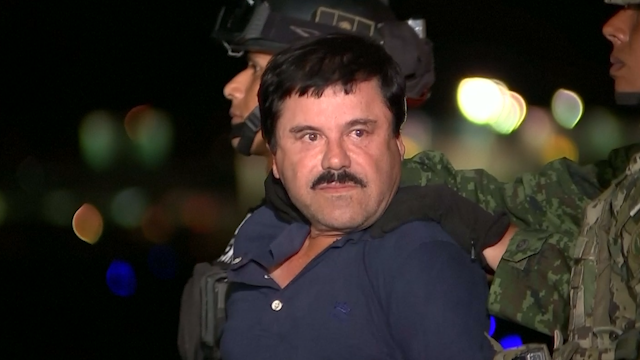El Chapo: Mexico to extradite drug kingpin Joaquin Guzman to US

Mexico has sought to extradite the recaptured drug kingpin Joaquin "El Chapo" Guzman as it emerged that his interview with actor and activist Sean Penn proved his undoing. The extradition process could take several months and Guzman's lawyers are expected to fight it.
Mexican authorities are keen on moving Guzman to the US in keeping with Washington's extradition requests since 2014. Guzman, nicknamed "Shorty", faces multiple charges including drug trafficking, money laundering and homicide in the US. His powerful drug cartel is responsible for smuggling billions of dollars worth of drugs into the US.
"Since Guzman Loera has been recaptured, the beginning of the extradition proceedings should begin," Mexico's attorney general's office said. He was sent to the same maximum-security prison, from where he escaped in July, ending months of the manhunt. He was captured by Mexican marines in the coastal city of Los Mochis after an intense gunfight, which left five people dead.
Meanwhile, US magazine Rolling Stone published an interview with Guzman shortly after he was captured. The interview, taken by Penn, took place three months after his escape while Guzman was still on the run. Penn spent several hours with the notorious drug lord in the Mexican jungle and his follow-up questions were also answered several weeks later.
In a blatant admission of the inner workings of his Sinaloa Cartel, Guzman boasted to Penn: "I supply more heroin, methamphetamine, cocaine and marijuana than anybody else in the world. I have a fleet of submarines, airplanes, trucks and boats."
Speaking about his early involvement in drug trafficking, Guzman said: "Where I come from... there are no job opportunities. The only way to have money to buy food, to survive, is to grow poppy, marijuana... to cultivate it and to sell it. That is what I can tell you." Apparently, Guzman's Hollywood ambitions to make a biopic of himself did him in as authorities were able to track his communication.
Attorney general Arely Gomez said: "An important aspect that allowed us to locate him was that we discovered Guzman's intention to make a biographical film, for which he established contact with actresses and producers. The follow-up work allowed us to document meetings between attorneys of the now-detainee and these people."
© Copyright IBTimes 2025. All rights reserved.






















